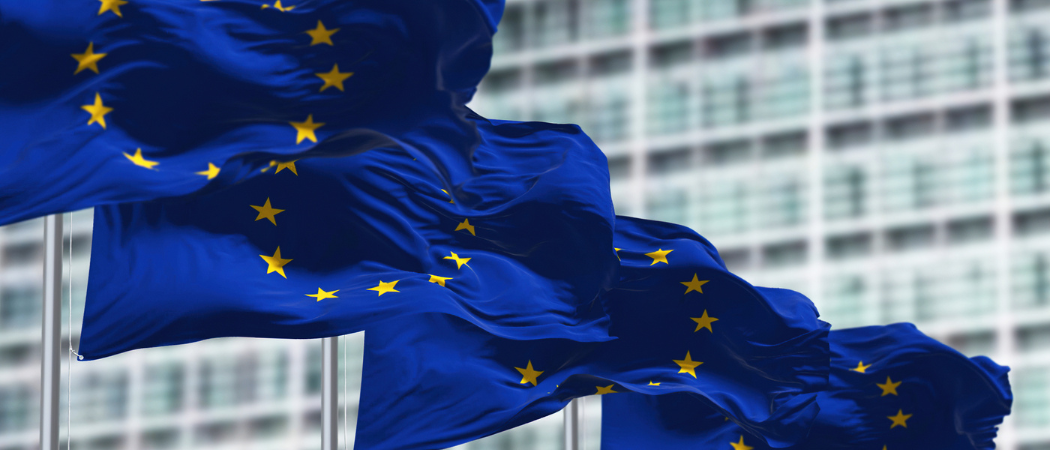Leaked document shows head of RTD Marc Lemaître is planning unit to focus on how AI can increase productivity in science whilst preventing its misuse

The European Commission is to add a new unit with a brief to set down guidelines for the use of generative artificial intelligence (AI) in science, according to a leak on the upcoming restructuring of the research and innovation directorate general, DG RTD.
Alongside developing a new policy on how AI is applied to accelerate productivity in science whilst ensuring its integrity is not compromised, the new unit, ‘E4: Industry 5.0 and AI in science’, will be responsible for implementing an action plan for the Industry 5.0 model, under which employees are to be empowered to work better and faster in a “sustainable, human-centric and resilient European industry”.
Unit E4 will come up with guidelines on the use of generative AI in science with the help of members of the Commission’s Scientific Advice Mechanism.
Generative AI models are being fed enormous amounts of data, based on which they can write essays, scientific papers, computer code, jokes and ‘answer’ philosophical questions. While it’s still in its infancy, proponents of the technology say it could fuel scientific discoveries by accelerating the rate at which researchers can discover new molecules or materials and generate new hypotheses.
In June OECD published a report on applying AI to accelerate productivity in research, in which it says, “While AI is penetrating all domains and stages of science, its full potential is far from realised. Policy makers and actors across research systems can do much to accelerate and deepen the uptake of AI in science, magnifying its positive contributions to research.”
But despite this promise, there are growing concerns relating to issues including copyright and academic dishonesty. The National Institutes of Health (NIH) in the US has placed limits on generative AI in its peer review processes, saying evaluators should not upload or share “content or original concepts” stemming from NIH grant applications and proposals to online generative AI tools such as Chat GPT. That would be considered a violation of NIH’s “peer review confidentiality and integrity requirements” it said in a paper released in June.
At the same time, the US national Science Foundation has put together an internal working group to find out if there are ways to integrate AI tools in the production of science.
While the EU is in the process of finalising its first regulation on artificial intelligence, the scientific community is yet to come up with a unified response on how generative AI could be used higher education and research. The new unit in RTD would be a first step towards a coordinated response by the EU to the rising challenges and opportunities posed by generative AI in science.
The plan was unveiled at an internal RTD meeting on 5 July, where director general Marc Lemaître presented the main organisational changes he wants to implement by the end of the year.
Healthy planet moves
Lemaitre also wants to clarify who does what in directorates B and C, which are currently focused on ‘Healthy Planet’ and ‘Clean Planet’ respectively.
The unit for ecological and social transitions headed by Bernd Biervert will be split and files related to healthy planet would be moved to a revamped B1 unit, which will be called ‘Green Transitions Policy and Coordination – Circular Biobased Systems’.
In addition, the ‘Healthy Oceans and Seas’ unit is to be renamed ‘Oceans and Waters’ and given the goal of “understanding, unlocking and harnessing” the potential of oceans, seas, lakes and rivers by 2030. The unit is also in charge of the Oceans Mission in Horizon Europe.
Lemaître is planning a new unit focused on ‘Health and Societal Transitions’ which is to replace ‘Fair Societies & Cultural Heritage’. Topics related to culture will be handled in the democracy unit, which is to be rebranded as ‘Democracy, Equality and Culture’.
The changes will be paired with a reduction of staff. The directorate general has a total headcount of 950 but that is due to be cut by 75 over the next three years, as part of a Commission-wide effort to slim down operations.
These cuts are a continuation of plans set in motion a few years ago, when the Commission decided to keep RTD focused on research and innovation policy and the design of the Horizon programme and to move the management of research grants to executive agencies.
In an interview with Science|Business in July, Lemaître noted this will not be the first time he’s been assigned the job of slimming down a Commission service. But he insists it’s a challenge to be embraced and a chance to improve the directorate. He hopes to get the reorganisation done by 1 November.
“We will now turn to the implications for each and every individual staff [member], turn to the details of possible shifts of responsibilities between different entities, specifically different units,” Lemaître said at the time.





 A unique international forum for public research organisations and companies to connect their external engagement with strategic interests around their R&D system.
A unique international forum for public research organisations and companies to connect their external engagement with strategic interests around their R&D system.